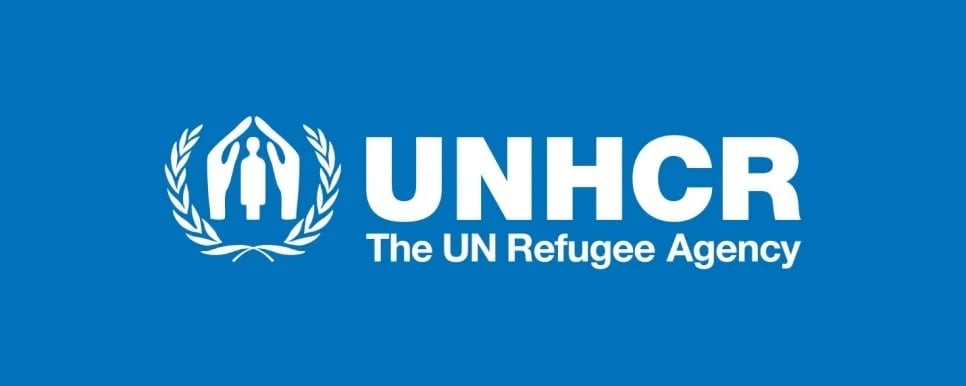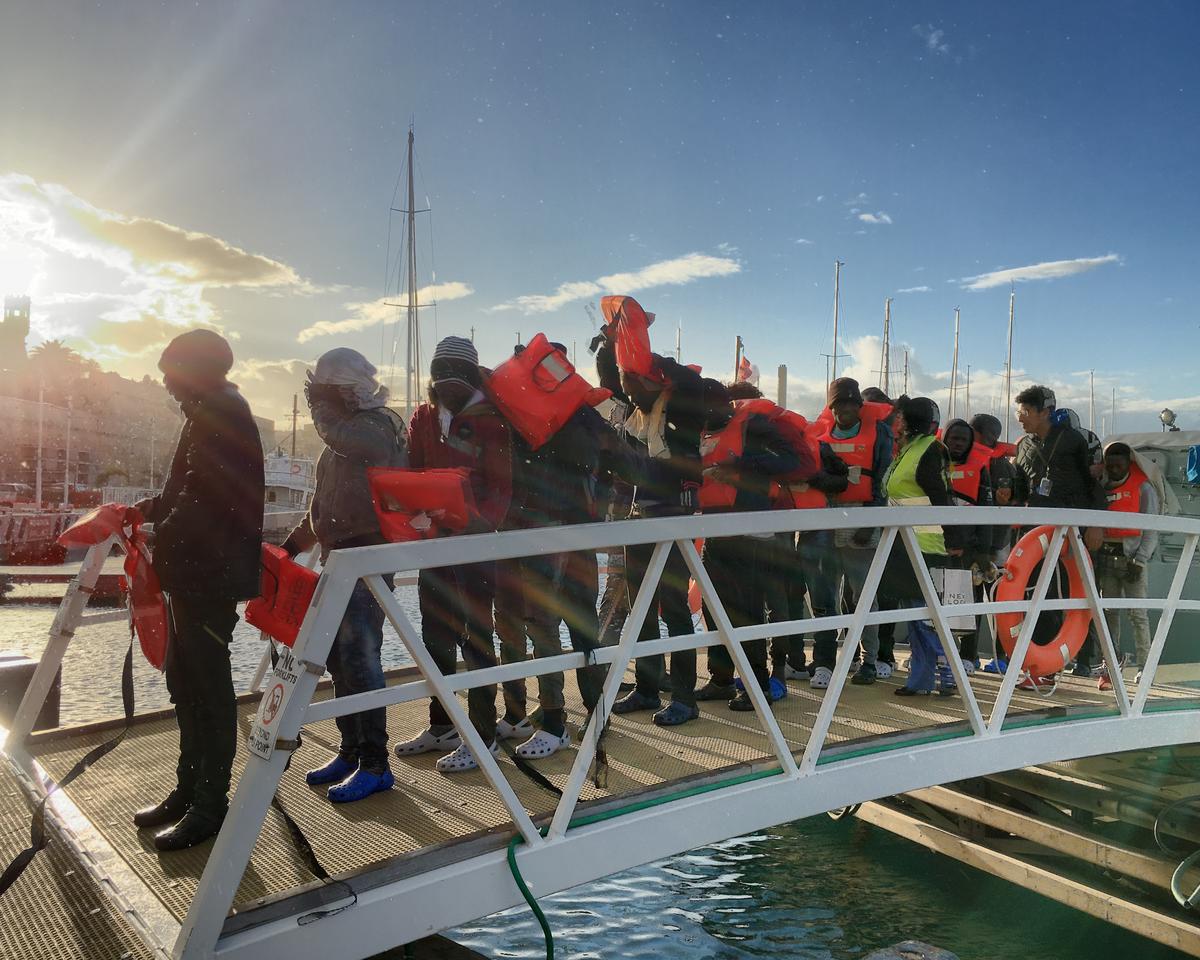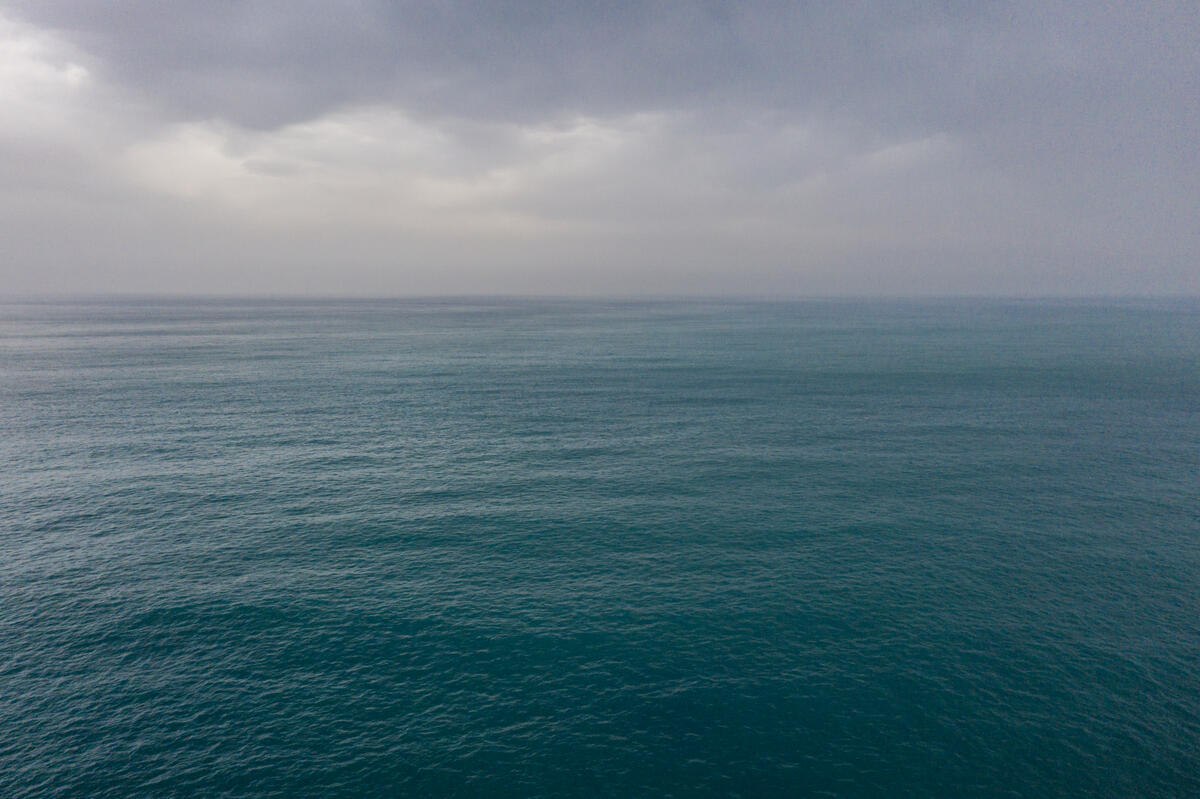Burns victims receive treatment in Sicilian hospital
Burns victims receive treatment in Sicilian hospital

PALERMO, Sicily, April 20 (UNHCR) - A crucifix hangs above one-year-old Dina as she lies, wrapped in bandages, on a bed at Palermo's central hospital. Although she sleeps, her body writhes in pain, and, on her face, a burn is beginning to peel. Her mother, Rahel, says the child still has bad dreams of the explosion that injured her before they left Libya on a boat.
The mother and daughter are among 71 people who survived a treacherous journey across the Mediterranean Sea last week, aboard a half-deflated dinghy. When they were rescued off the coast of Italy's Lampedusa Island in the early hours of Thursday, many were suffering from severe burns - the result of a gas canister explosion back on land in Libya. Twenty-three people were then helicoptered to Sicily and admitted to a burns unit on the island.
Their plight has since been overshadowed by the sinking of another vessel off Malta, with hundreds feared dead. But their experience also helps highlight the need for urgent action in response to the growing number of people willing to risk their lives in a bid to reach Europe across the Mediterranean.
All 23 of them are still in the hospital today. Beds and bandages are bloodied, and Rahel still had no shoes, three days after the rescue. Baby Dina, attached to an intravenous drip, wears nothing but a tiny hospital scrub.
Rahel paid US$5,000 to get to where she is now, fleeing from Eritrea to South Sudan, before finally travelling on to Libya. One night, after the explosion, smugglers packed her and 70 others onto an inflatable dinghy with the promise that they would be transferred to a larger boat - but it never happened. It wasn't long before they found themselves stranded at sea.
At least as Dina grows, she will likely forget all of this. For many others in this hospital, the mental scars will stay with them for the rest of their life.
Downstairs, in another ward, three young Eritrean girls are also lying in their beds, hardly moving, except to shiver. One is suffering from such severe burns that doctors have had to shave her head. Now, the others are terrified that they will have to do the same, since, in their culture, a shaved head signifies death in the family.
One badly burned girl next door is still so traumatized from the horror she has experienced that her sobs can be heard from the end of the corridor. While she is relieved that her husband made it to Lampedusa Island alive, her brother is still waiting in Libya to cross and now she worries for him every day.
In this ward, there will be no visitors, no loved ones to check on her. Unlike most of the patients in this hospital, these people are suffering alone.
The vessel that they travelled in is just one of several that have carried around thousands of people to Lampedusa over the past few days. It further exacerbates the growing crisis in the Mediterranean, with more than 13,300 arrival of refugees and migrants in Europe this year so far, and hundreds of deaths.
UNHCR is appealing afresh to governments across Europe to prioritize the saving of lives, by urgently expanding and upgrading search-and-rescue capacities.
Barbara Molinario, a UNHCR spokesperson, said: "Some of these people are in an intensive care unit and in a lot of pain. They're very concerned also because their families haven't heard from them. Dina is being assisted but it's really too soon to know how she will be, and the mother is very worried because the baby keeps having nightmares and waking up in the night."
Tonight, baby Dina will twist and turn through her nightmares, her face contorted with pain. Like everybody else here, she desperately needs help. All her mother can do is pray for her child's recovery and relive her own ordeal.
By Kate Bond in Palermo, Italy








